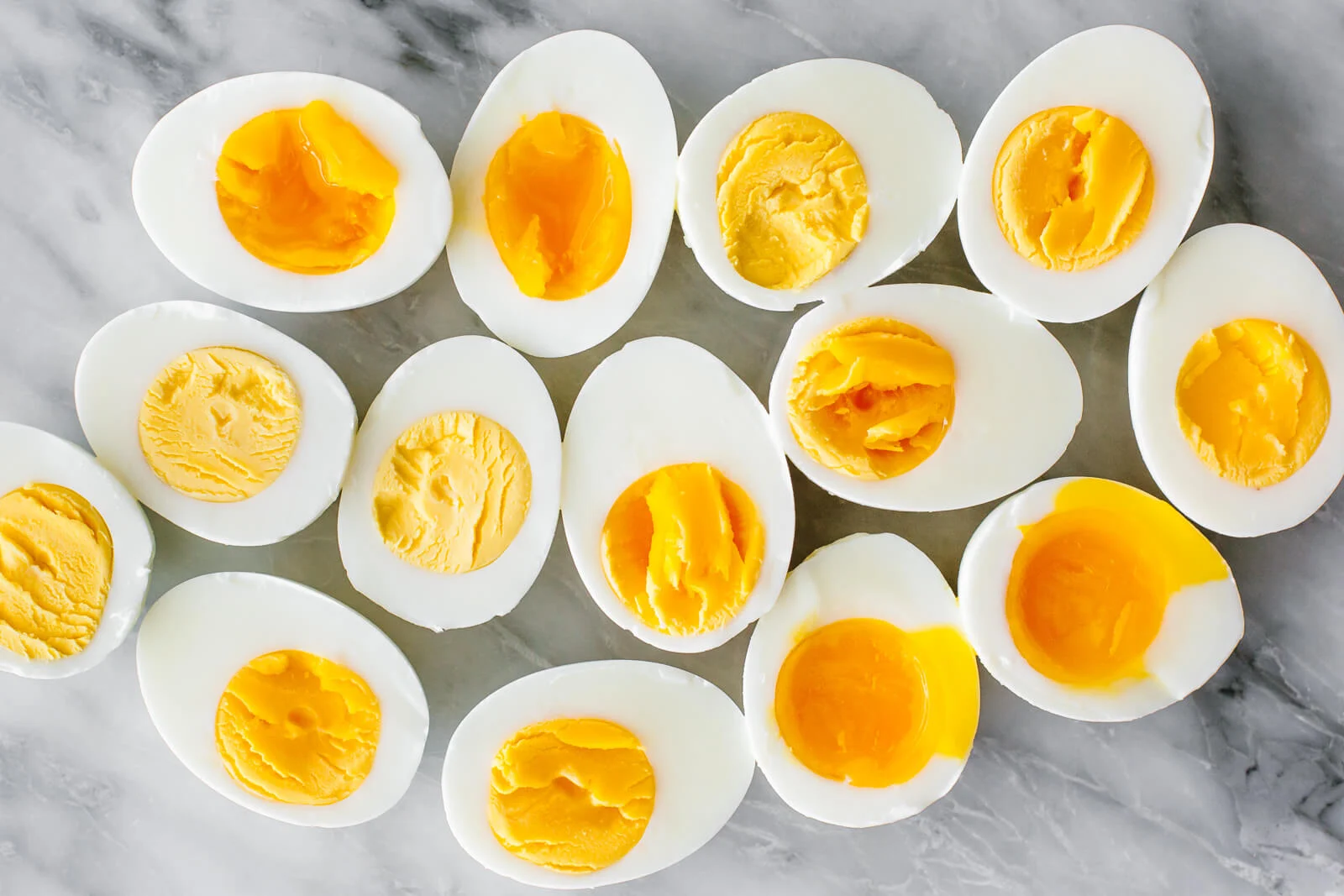

Articles
How To Store Cooked Eggs
Modified: February 27, 2024
Learn the best tips for storing cooked eggs in this informative article. Keep your eggs fresh and tasty for longer periods.
(Many of the links in this article redirect to a specific reviewed product. Your purchase of these products through affiliate links helps to generate commission for Storables.com, at no extra cost. Learn more)
Introduction
Cooking eggs is a common practice in many households, whether it’s for breakfast, lunch, or dinner. But what happens when you have leftovers? Knowing how to properly store cooked eggs is essential to maintain their freshness and flavor. Improper storage can not only lead to a loss of taste and texture but also increase the risk of foodborne illnesses.
In this article, we will explore the importance of properly storing cooked eggs and discuss the various factors to consider before deciding on the best storage options. We will also provide you with helpful tips and safety precautions to ensure that your cooked eggs remain safe to consume. So, let’s dive in and learn how to store cooked eggs effectively!
Key Takeaways:
- Properly storing cooked eggs is crucial to maintain their freshness, flavor, and safety. Refrigeration is the preferred method, but room temperature storage and freezing are also viable options for short-term and extended preservation.
- Following safety precautions, such as prompt refrigeration, proper hygiene, and controlled thawing, is essential to prevent bacterial contamination and foodborne illnesses when storing cooked eggs. Prioritize food safety and enjoy your leftovers worry-free!
Read more: How To Store Eggs For Camping
Importance of Properly Storing Cooked Eggs
Properly storing cooked eggs is crucial to maintain their quality and prevent bacterial growth. Eggs are highly perishable, and improper storage can lead to the growth of harmful bacteria like Salmonella, which can cause foodborne illnesses.
When eggs are cooked, their protective shell is removed, exposing the cooked egg to external elements. This makes the cooked egg more susceptible to contamination and spoilage if not stored correctly.
By storing cooked eggs properly, you can:
- Preserve their freshness: Proper storage helps to retain the flavor, texture, and nutritional value of cooked eggs.
- Minimize the risk of foodborne illnesses: Storing cooked eggs at the correct temperature inhibits the growth of harmful bacteria and reduces the chances of food poisoning.
- Reduce waste and save money: By storing cooked eggs properly, you can extend their shelf life and minimize food waste.
Whether you have leftover hard-boiled eggs, scrambled eggs, or omelets, following the right storage practices is crucial to ensure food safety and prevent any potential health risks.
Now that we understand why it is important to store cooked eggs properly, let’s explore the factors that should be considered before storing them.
Factors to Consider Before Storing Cooked Eggs
Before you go ahead and store cooked eggs, there are a few important factors to consider to ensure optimal safety and freshness. These factors include:
- Temperature: The temperature at which you store cooked eggs is critical. Bacteria tend to grow rapidly at temperatures between 40°F (4°C) and 140°F (60°C), known as the “danger zone.” To prevent bacterial growth, it is crucial to store cooked eggs at the appropriate temperature.
- Storage Duration: The length of time you can safely store cooked eggs depends on various factors, including the cooking method and storage conditions. It is important to be aware of the recommended storage duration to ensure optimal food safety.
- Cooking Method: Different cooking methods can affect the shelf life of cooked eggs. For example, hard-boiled eggs tend to have a longer shelf life compared to eggs prepared in a more liquid form, such as scrambled eggs or omelets.
- Storage Containers: Choosing the right storage containers is essential to maintain the quality of cooked eggs. Opt for airtight containers that are specifically designed for food storage to prevent contamination and odor absorption.
- Prior Contamination: If the eggs were not handled or cooked properly before being stored, they may already be contaminated. It is important to practice good hygiene and safe cooking practices to reduce the risk of bacterial contamination.
- Reheating Considerations: If you plan to reheat the cooked eggs before consuming them, take into account the reheating method and ensure that the eggs reach a safe internal temperature to kill any potential bacteria.
Considering these factors will help you make informed decisions about how to store your cooked eggs properly. In the following sections, we will explore the best storage options for cooked eggs, including both refrigeration and room temperature storage methods.
Best Storage Options for Cooked Eggs
Now that we’ve discussed the factors to consider, let’s explore the best storage options for cooked eggs. There are two main methods for storing cooked eggs: refrigeration and room temperature storage. Each method has its advantages and should be chosen based on factors such as storage duration and intended use.
- Refrigeration: Refrigeration is the most common and recommended method for storing cooked eggs. It helps to slow down bacterial growth and extends the shelf life of the eggs. Here are the guidelines to follow for refrigerated storage:
- Allow the cooked eggs to cool down completely before refrigerating them. Placing hot eggs in the refrigerator can increase the internal temperature, potentially affecting other refrigerated items.
- Transfer the cooked eggs to airtight containers or wrap them tightly with plastic wrap to prevent moisture loss and contamination.
- Label the container with the date of storage to keep track of their freshness.
- Store the eggs in the main compartment of the refrigerator, away from raw meat, poultry, and other potentially contaminated items.
- Refrigerated cooked eggs can be safely stored for up to one week.
- Room Temperature Storage: While refrigeration is the preferred method, there are instances where room temperature storage may be suitable. Here are some considerations for room temperature storage of cooked eggs:
- Room temperature storage is only recommended for short periods, typically for a few hours.
- Ensure that the room where the cooked eggs are stored is cool, dry, and free from direct sunlight.
- When storing eggs at room temperature, they should still be kept in an airtight container or covered with food-grade plastic wrap to minimize the risk of contamination.
- Discard any eggs that have been at room temperature for more than two hours, as bacterial growth increases significantly after this time.
It’s important to note that once room temperature storage has been chosen, refrigeration should not be pursued afterward. Cooked eggs that have been stored at room temperature should not be refrigerated, as the change in temperature can promote bacterial growth and potentially lead to foodborne illnesses.
Now that we have explored the best storage options for cooked eggs, let’s dive deeper into the specifics of each method: refrigeration, room temperature storage, and freezing.
Storing Cooked Eggs in the Refrigerator
Refrigeration is the most effective method for storing cooked eggs as it helps maintain their freshness and prevents bacterial growth. By following proper storage practices, you can extend the shelf life of your cooked eggs and ensure their safety. Here’s how to store cooked eggs in the refrigerator:
- Allow the cooked eggs to cool down completely before placing them in the refrigerator. Placing hot eggs in the fridge can raise the internal temperature, potentially affecting other perishable items.
- Transfer the cooked eggs to airtight containers or wrap them tightly with plastic wrap. This helps prevent moisture loss and protects the eggs from absorbing odors from other foods in the refrigerator.
- Label the container with the date of storage. This helps you keep track of how long the eggs have been stored and ensures that you use them within a safe timeframe.
- Store the cooked eggs in the main compartment of the refrigerator, away from raw meat, poultry, and other potentially contaminated items. This helps minimize the risk of cross-contamination.
- Refrigerated cooked eggs can be safely stored for up to one week. It is recommended to consume them within this timeframe to maintain their quality and taste.
When you’re ready to eat the stored cooked eggs, make sure to inspect them for any signs of spoilage. Discard any eggs that appear discolored, slimy, or have an off smell.
It’s important to note that the texture of refrigerated cooked eggs may change slightly after being stored. Hard-boiled eggs, for example, may develop a slightly rubbery texture. However, they are still safe to eat as long as they are stored properly and within the recommended timeframe.
Now that you know how to store cooked eggs in the refrigerator, let’s move on to another storage option – storing cooked eggs at room temperature.
Read more: How To Store Royal Icing With Egg White
Storing Cooked Eggs at Room Temperature
While refrigeration is the preferred method for storing cooked eggs, there may be situations where room temperature storage is necessary. However, it’s important to exercise caution and follow specific guidelines to ensure the safety of the eggs. Here’s how to store cooked eggs at room temperature:
- Room temperature storage is only recommended for a short period, typically a few hours. Beyond that, the risk of bacterial growth increases significantly.
- Ensure the room where the cooked eggs are stored is cool, dry, and free from direct sunlight. Elevated temperatures can lead to bacterial growth and spoilage.
- Store the cooked eggs in an airtight container or cover them with food-grade plastic wrap to minimize the risk of contamination. This helps protect the eggs from any airborne bacteria or insects.
- Discard any cooked eggs that have been stored at room temperature for more than two hours. Bacterial growth can occur rapidly after this timeframe, increasing the risk of foodborne illnesses.
It’s important to note that room temperature storage is not suitable for long-term storage. Unlike refrigeration, which slows down bacterial growth, room temperature storage provides an environment that promotes bacterial multiplication.
If you find yourself needing to store cooked eggs for longer periods, it’s recommended to refrigerate them to ensure their safety and maintain their quality. Remember, once eggs have been at room temperature, they should not be refrigerated as this can promote bacterial growth.
Now that you are familiar with storing cooked eggs at room temperature, let’s explore an alternative storage option – freezing cooked eggs.
Store cooked eggs in the refrigerator within 2 hours of cooking. Place them in a covered container to prevent absorption of odors and flavors from other foods. Use within 3-4 days for best quality.
Storing Cooked Eggs in the Freezer
Freezing cooked eggs is an excellent option if you want to extend their shelf life even further. Freezing can help preserve the taste, texture, and nutritional value of the eggs. Here’s how to store cooked eggs in the freezer:
- Before freezing, allow the cooked eggs to cool completely. Placing hot eggs in the freezer can raise the temperature and potentially affect the quality of other frozen items.
- Transfer the cooked eggs to a freezer-safe container or wrap them tightly with aluminum foil or freezer-grade plastic wrap. This helps prevent freezer burn and protects the eggs from absorbing odors.
- Label the container with the date of freezing. This helps you keep track of how long the eggs have been stored and ensures that you use them within a safe timeframe.
- Place the container in the freezer. For best results, store the cooked eggs in the coldest part of the freezer to maintain their quality.
- Frozen cooked eggs can be stored for up to three months. While they can be safe for a longer period, their quality and taste may deteriorate over time.
When you’re ready to use the frozen cooked eggs, thaw them in the refrigerator overnight. It’s important to thaw them in a controlled environment to prevent bacterial growth.
Once thawed, you can use the cooked eggs in various recipes such as omelets, quiches, casseroles, and sandwiches. However, avoid refreezing previously frozen cooked eggs as it can affect their texture and quality.
Now that you understand how to store cooked eggs in the freezer, it’s time to explore some tips for extending the shelf life of cooked eggs.
Tips for Extending the Shelf Life of Cooked Eggs
Proper storage is key to extending the shelf life of cooked eggs and maintaining their quality. Here are some helpful tips to keep your cooked eggs fresh for as long as possible:
- Store the cooked eggs in the refrigerator within 2 hours of cooking. Prompt refrigeration helps slow down bacterial growth and ensures food safety.
- Keep the eggs in airtight containers or wrap them tightly with plastic wrap to prevent moisture loss and contamination from other foods.
- Label the storage container with the date of storage to keep track of freshness and avoid consuming expired cooked eggs.
- Prioritize using the older cooked eggs first. This helps prevent food waste and ensures that the freshest eggs are consumed.
- If you have a large batch of cooked eggs that you won’t consume before the recommended storage duration, consider freezing them to extend their shelf life.
- Thaw frozen cooked eggs in the refrigerator overnight to ensure safe and controlled thawing. Avoid thawing at room temperature to prevent bacterial growth.
- When reheating cooked eggs, ensure they reach a safe internal temperature of 165°F (74°C) to eliminate any potential bacteria.
- Only thaw and reheat the amount of cooked eggs you need to avoid repeated thawing and reheating cycles.
- Regularly clean and sanitize storage containers to prevent cross-contamination and maintain food safety.
- Practice good hygiene and safe cooking practices when handling and preparing cooked eggs to minimize the risk of bacterial contamination.
By following these tips, you can maximize the shelf life of your cooked eggs and minimize food waste. Remember, always prioritize food safety and use your best judgment when consuming stored cooked eggs.
Next, let’s discuss important safety precautions to follow when storing cooked eggs.
Safety Precautions to Follow When Storing Cooked Eggs
Ensuring food safety is paramount when storing cooked eggs to prevent the risk of foodborne illnesses. Here are some important safety precautions to follow:
- Handle cooked eggs with clean hands and use clean utensils during preparation and storage to avoid cross-contamination.
- Store cooked eggs promptly after cooling to prevent the growth of harmful bacteria. Leaving them at room temperature for too long can increase the risk of bacterial contamination.
- Refrigerate cooked eggs at a temperature below 40°F (4°C) to slow down bacterial growth. A refrigerator thermometer can help ensure the temperature is optimal.
- Do not store cooked eggs in the same container as raw eggs, raw meat, or other potentially contaminated foods. This helps prevent cross-contamination and the spread of bacteria.
- Regularly clean and sanitize storage containers to remove any built-up bacteria or food residue that could contaminate the cooked eggs.
- Label containers with the date of storage to keep track of freshness and prioritize using older cooked eggs first.
- Discard any cooked eggs that have been stored at room temperature for more than two hours to minimize the risk of bacterial growth.
- When reheating cooked eggs, ensure they reach a safe internal temperature of 165°F (74°C) to kill any potential bacteria.
- Follow good food safety practices throughout the entire cooking and storage process to minimize the risk of foodborne illnesses.
- If in doubt about the safety or quality of stored cooked eggs, it is always best to err on the side of caution and discard them.
By following these safety precautions, you can greatly reduce the risk of foodborne illnesses associated with improperly stored cooked eggs. Remember, it’s better to prioritize food safety and maintain high hygiene standards when handling and storing any food items.
Now that you’ve learned about the safety precautions, let’s address some common questions related to storing cooked eggs.
Read more: How To Store Egg
Frequently Asked Questions (FAQs)
Q: Can I store cooked eggs at room temperature?
A: Room temperature storage is not recommended for cooked eggs. Bacterial growth can occur rapidly at room temperature, increasing the risk of foodborne illnesses.
Q: How long can I store cooked eggs in the refrigerator?
A: Cooked eggs can be safely stored in the refrigerator for up to one week. It’s important to consume them within this timeframe to maintain freshness and ensure food safety.
Q: Can I freeze cooked eggs?
A: Yes, you can freeze cooked eggs. Freezing can extend their shelf life for up to three months. However, it’s essential to wrap them tightly and store them in freezer-safe containers to maintain their taste and quality.
Q: How can I thaw frozen cooked eggs?
A: To thaw frozen cooked eggs, transfer them to the refrigerator and allow them to thaw overnight. This method ensures controlled thawing and minimizes the risk of bacterial growth.
Q: Can I reheat stored cooked eggs?
A: Yes, you can reheat stored cooked eggs. Make sure to heat them to an internal temperature of 165°F (74°C) to eliminate any potential bacteria and ensure food safety.
Q: What signs indicate that cooked eggs have gone bad?
A: Discard cooked eggs that have an off smell, unusual texture, or appear discolored or slimy. These are signs of spoilage, and consuming them can lead to foodborne illnesses.
Q: Are leftover scrambled eggs safe to eat?
A: Leftover scrambled eggs can be safely stored in the refrigerator for up to one week. As long as they have been handled and stored properly, they can be reheated and consumed safely.
Q: Can I refreeze cooked eggs that have been previously frozen?
A: It’s not recommended to refreeze cooked eggs that have been previously frozen. This can affect their quality and texture. It’s best to thaw and consume frozen eggs in one go.
Q: How can I prevent bacterial contamination when storing cooked eggs?
A: To prevent bacterial contamination, ensure proper hygiene, handle cooked eggs with clean hands and utensils, and use airtight containers or wrap them tightly before storage. Regularly clean and sanitize storage containers as well.
Q: Are there any risks associated with storing cooked eggs?
A: Improper storage of cooked eggs can lead to bacterial growth and increase the risk of foodborne illnesses. It’s important to follow recommended storage practices and prioritize food safety when handling and storing cooked eggs.
Hopefully, these FAQs have addressed your concerns related to storing cooked eggs. If you have any further questions, don’t hesitate to seek professional guidance or consult reliable sources for more information.
Finally, let’s wrap up this article.
Conclusion
Knowing how to properly store cooked eggs is essential for maintaining their freshness, taste, and safety. Whether you choose to refrigerate, store at room temperature for a short period, or freeze them, following the recommended guidelines is crucial to minimize the risk of bacterial growth and foodborne illnesses.
Refrigeration is the preferred method for storing cooked eggs, as it slows down bacterial growth and extends their shelf life. Remember to cool down the eggs before refrigerating them, use airtight containers or wrap them tightly with plastic wrap, and consume them within one week.
If room temperature storage is necessary, take precautions to minimize the risk of bacterial contamination. Store the cooked eggs in a cool, dry room for no more than a few hours, and always discard any eggs that have been left out for too long.
Freezing cooked eggs is a great option if you want to extend their storage life even further. Make sure to cool the eggs completely before freezing, use freezer-safe containers or wrap them tightly, and label them with the date of freezing. Thaw them safely in the refrigerator and use them within three months for the best quality.
Remember to follow safety precautions such as practicing good hygiene, clean handling, and labeling containers to keep track of the storage duration. Now that you have a comprehensive understanding of how to store cooked eggs properly, you can confidently enjoy your leftovers while ensuring optimal freshness and food safety.
Stay mindful of the storage recommendations, prioritize food safety, and make the most of your cooked eggs without any worries. Happy cooking and storing!
Frequently Asked Questions about How To Store Cooked Eggs
Was this page helpful?
At Storables.com, we guarantee accurate and reliable information. Our content, validated by Expert Board Contributors, is crafted following stringent Editorial Policies. We're committed to providing you with well-researched, expert-backed insights for all your informational needs.
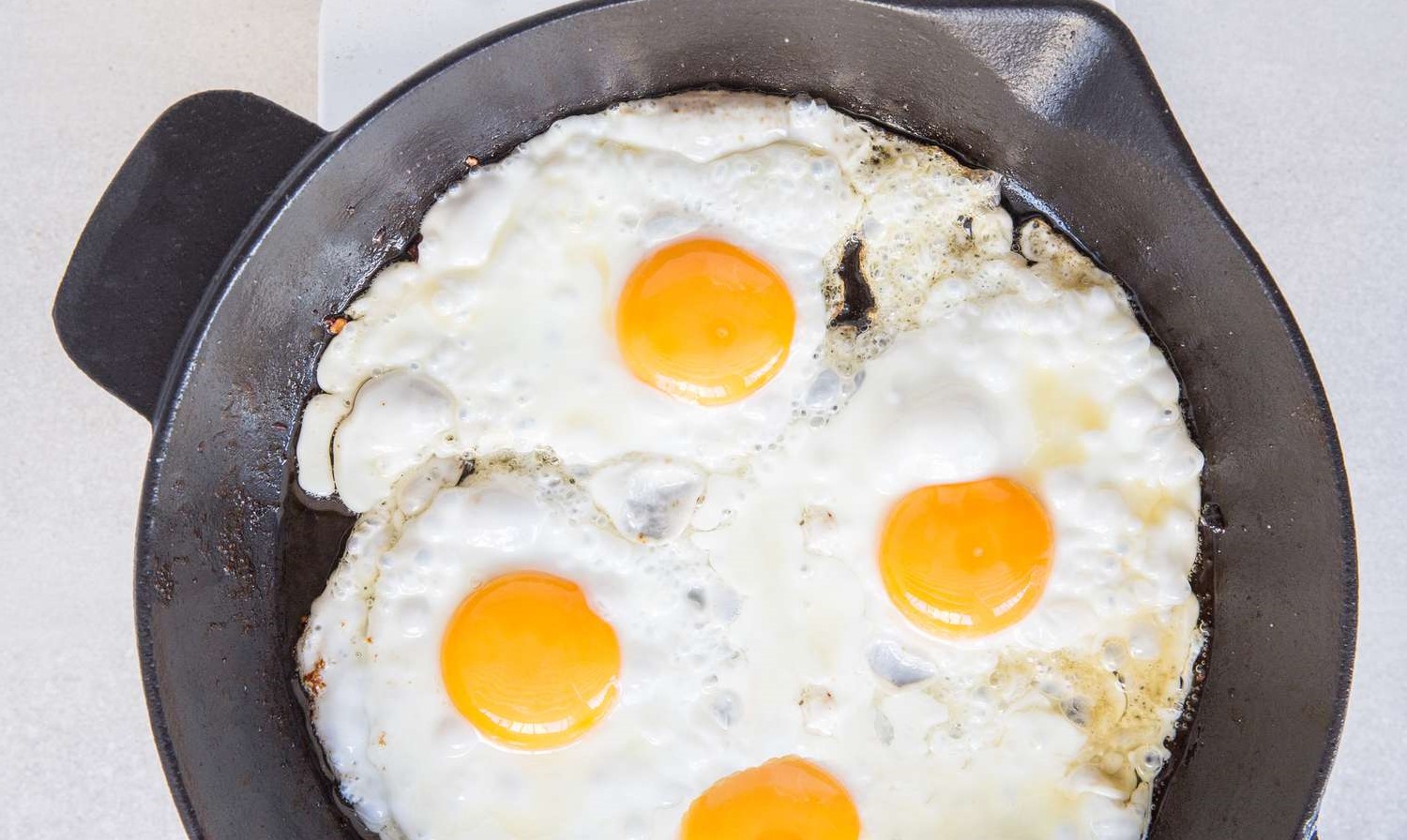
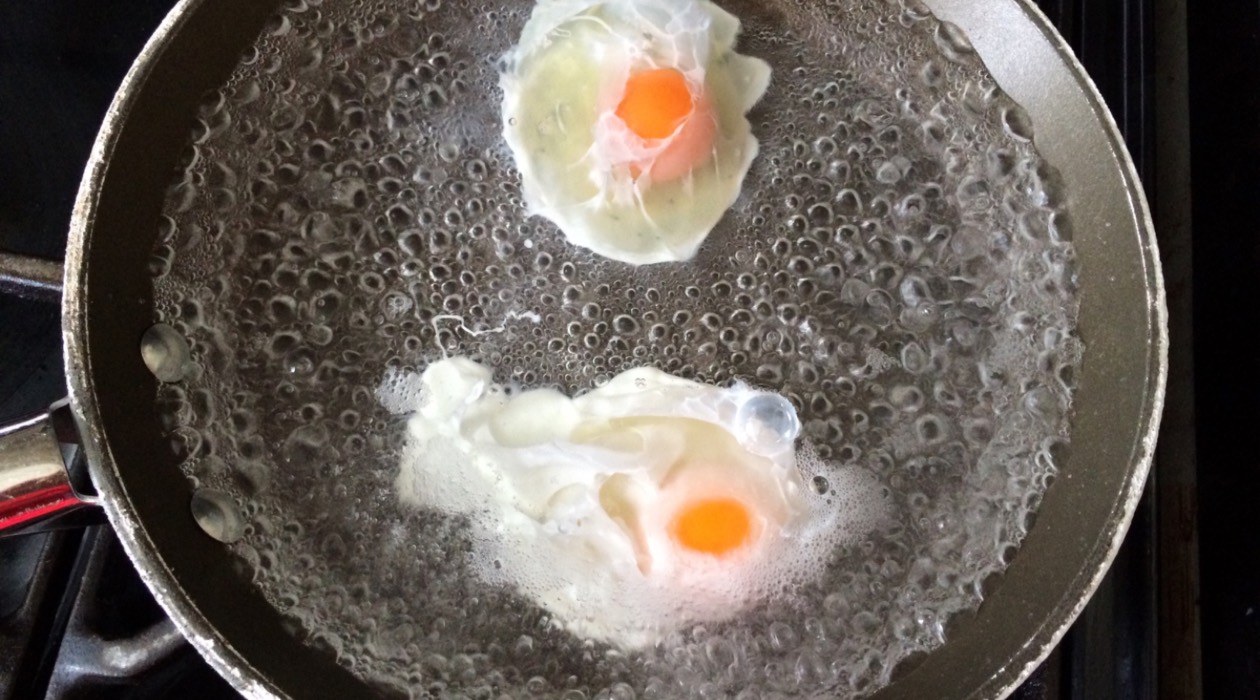
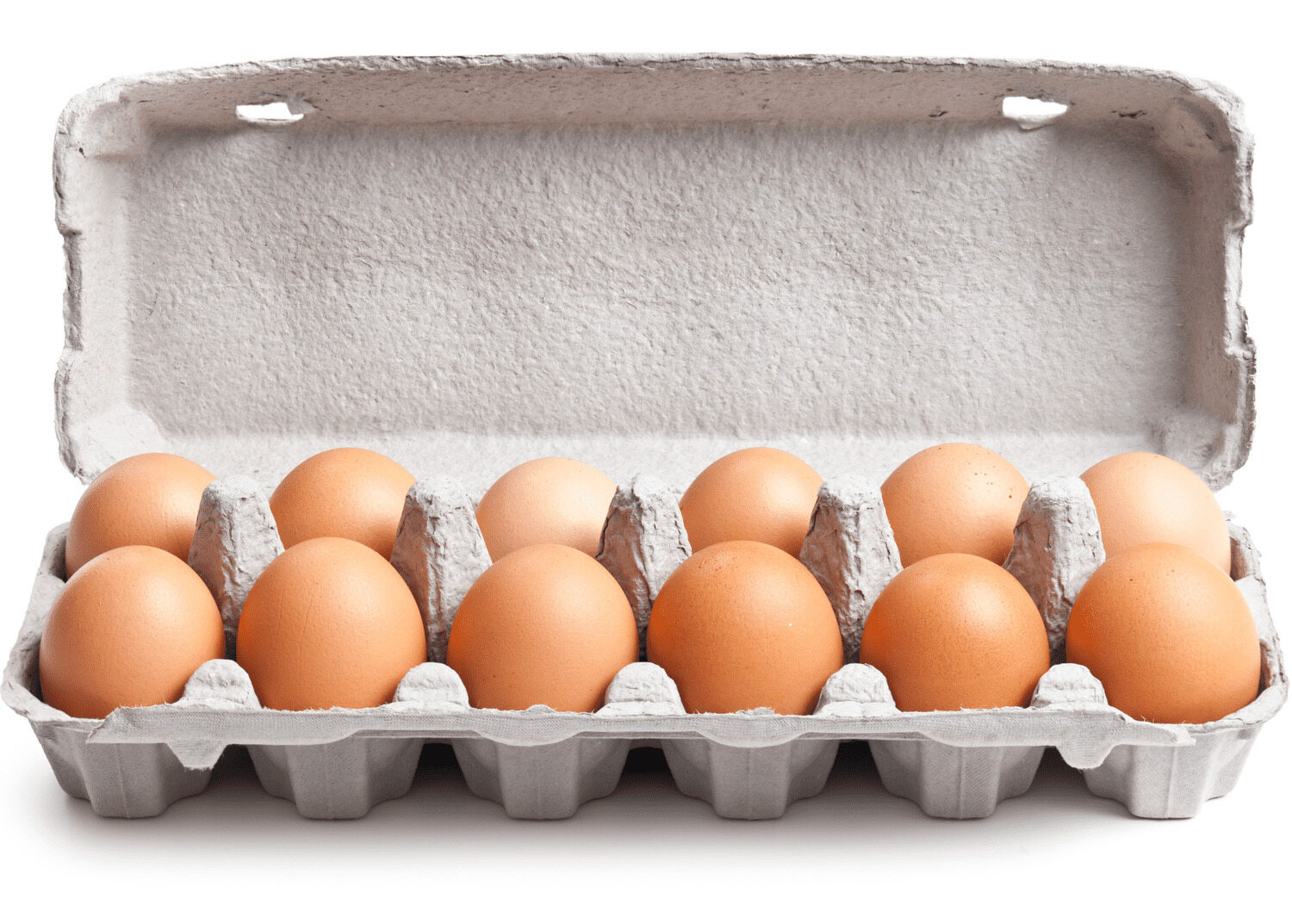

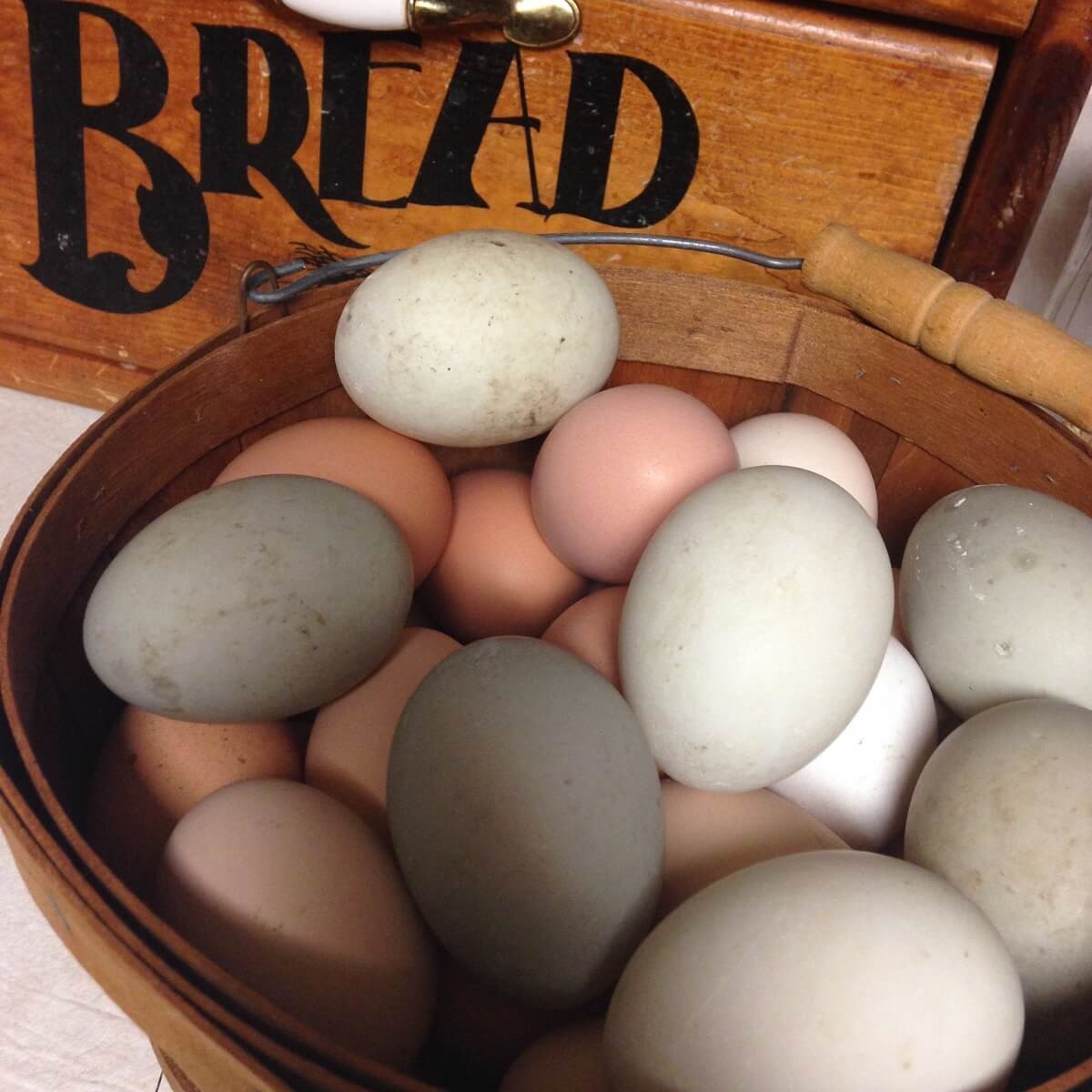

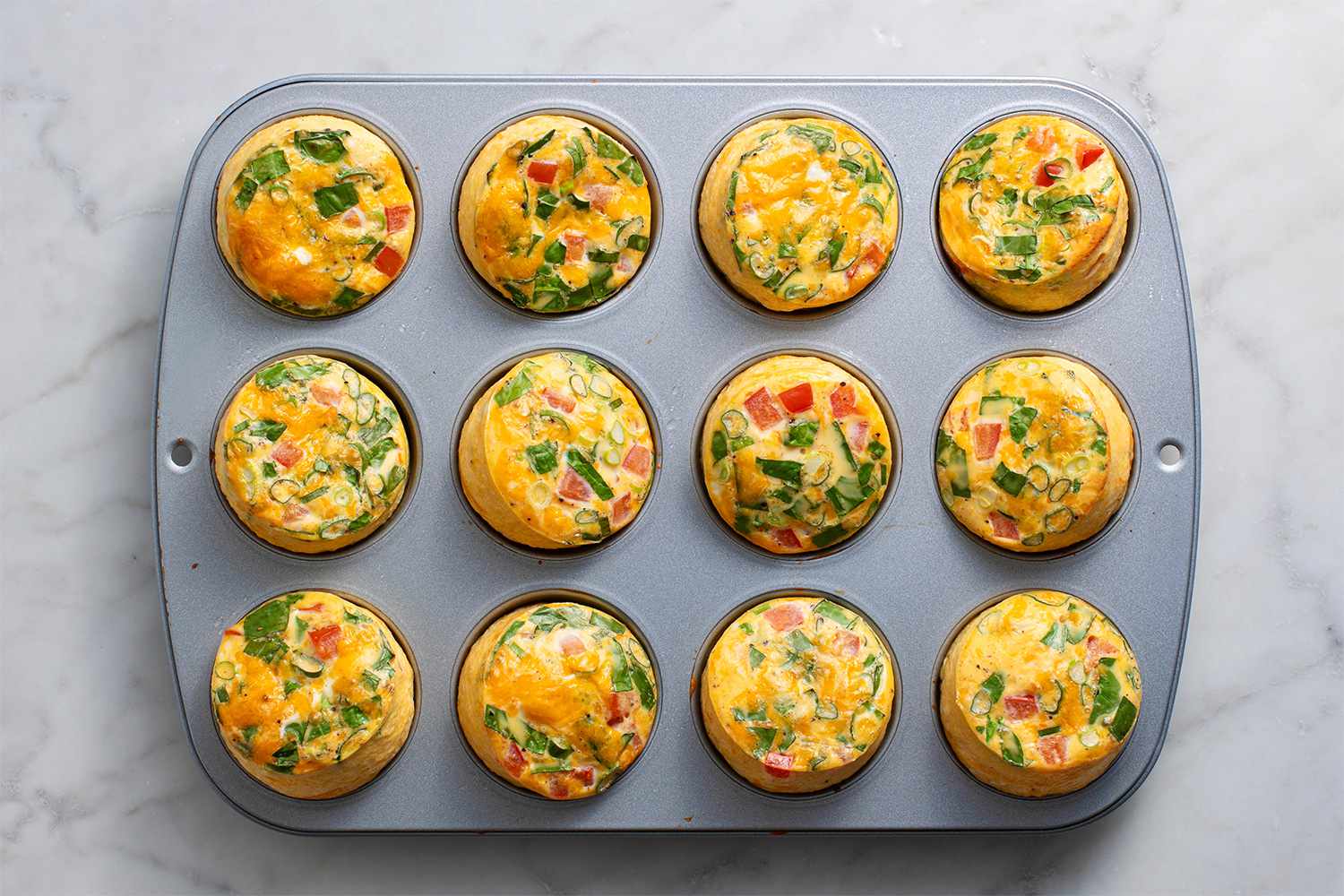
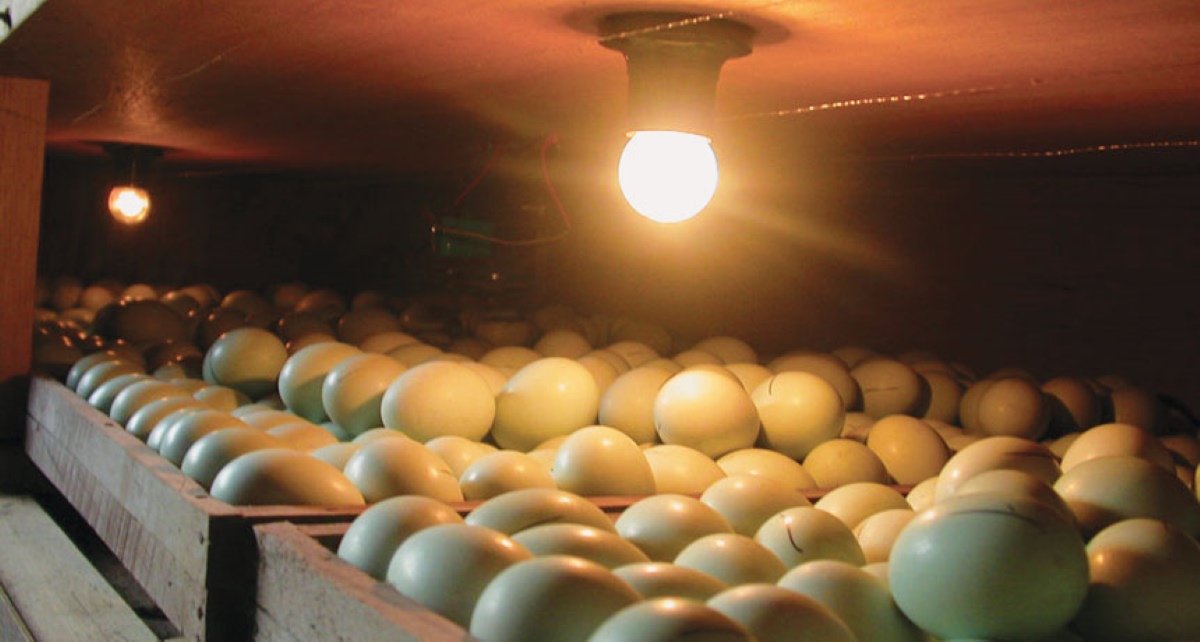
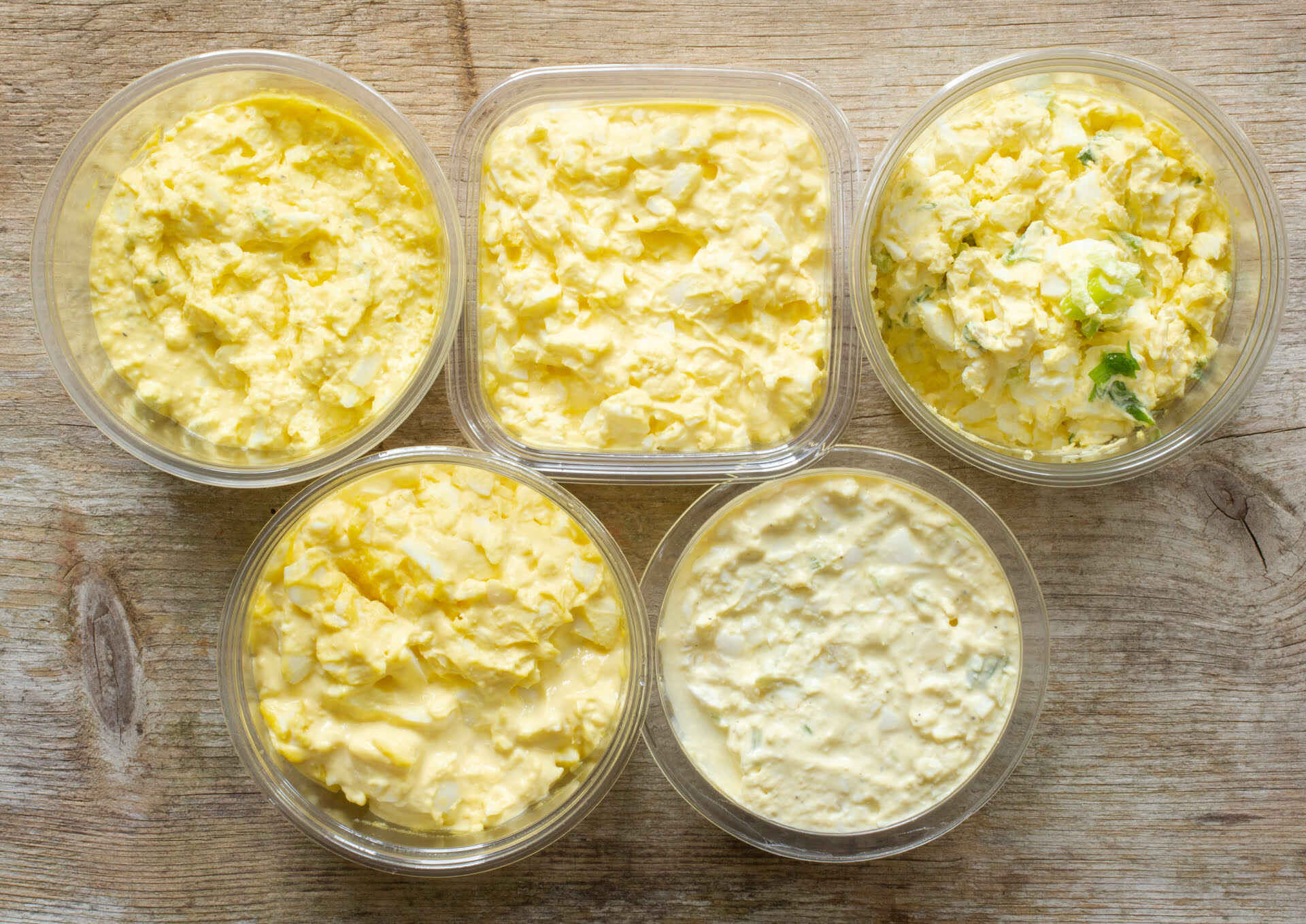
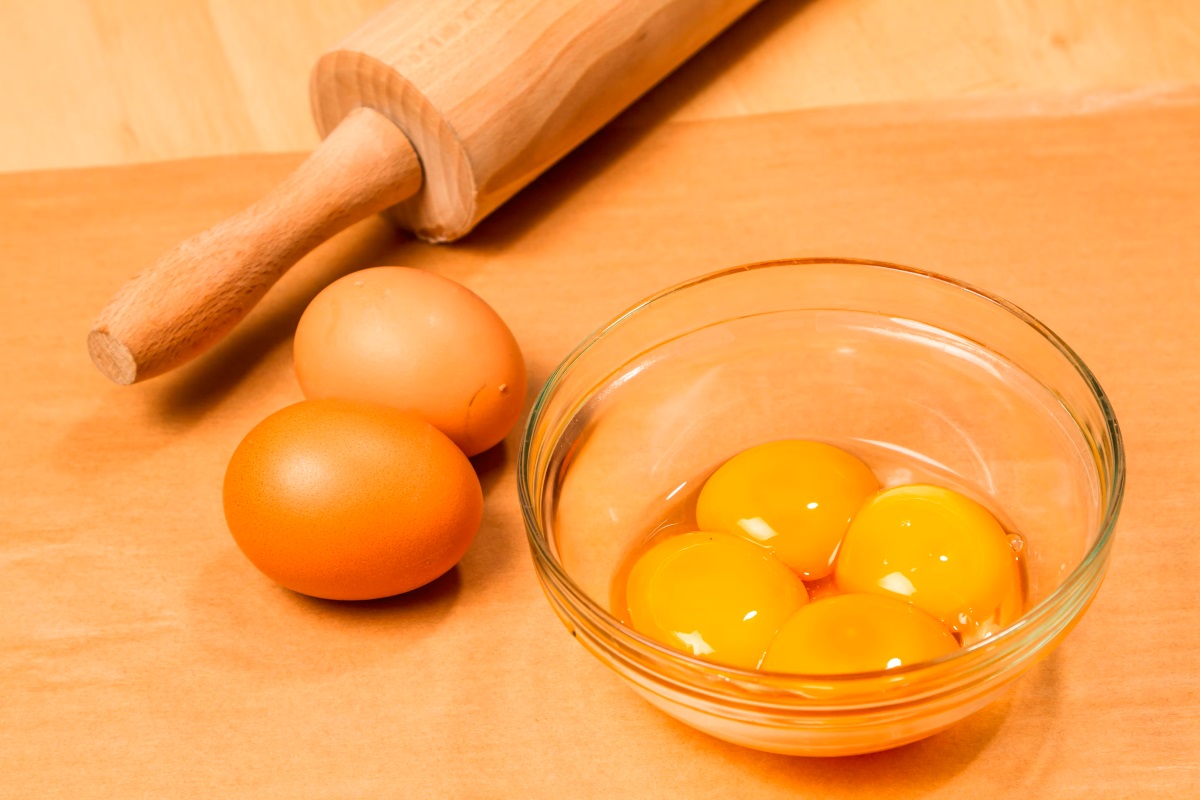
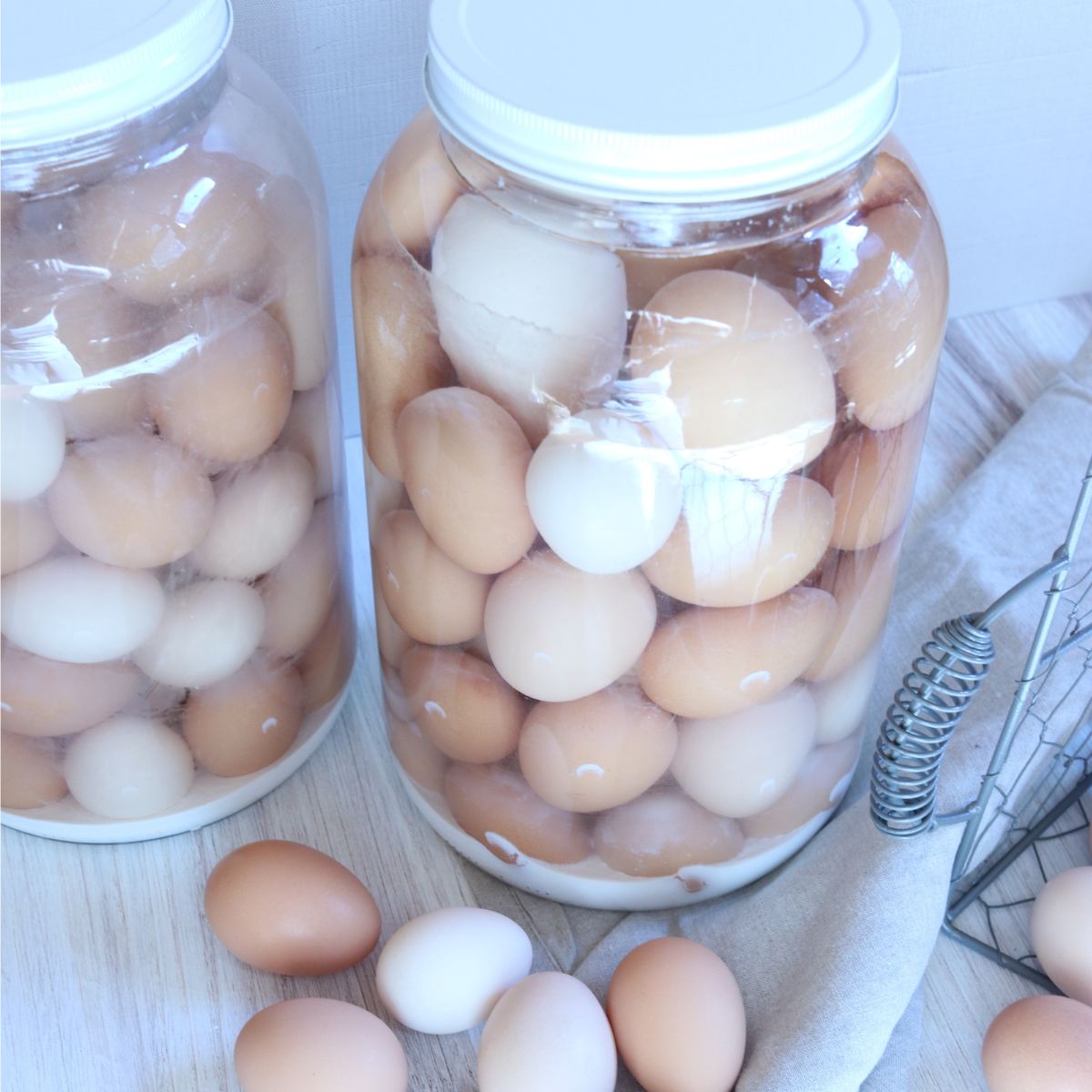
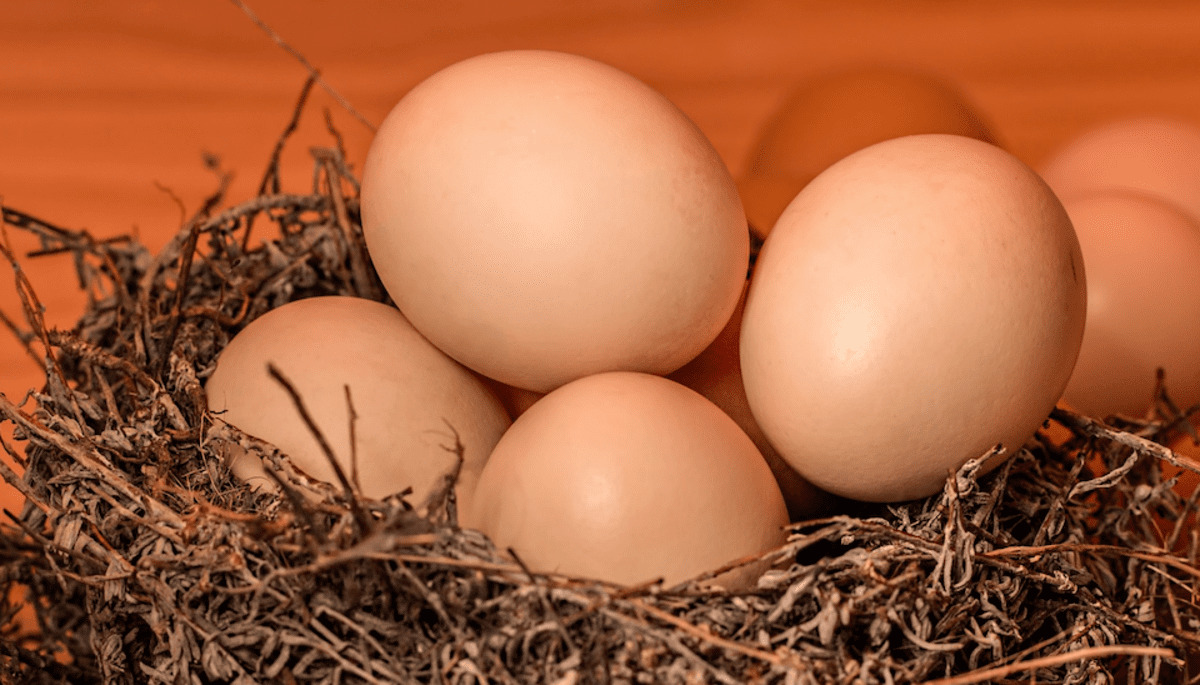
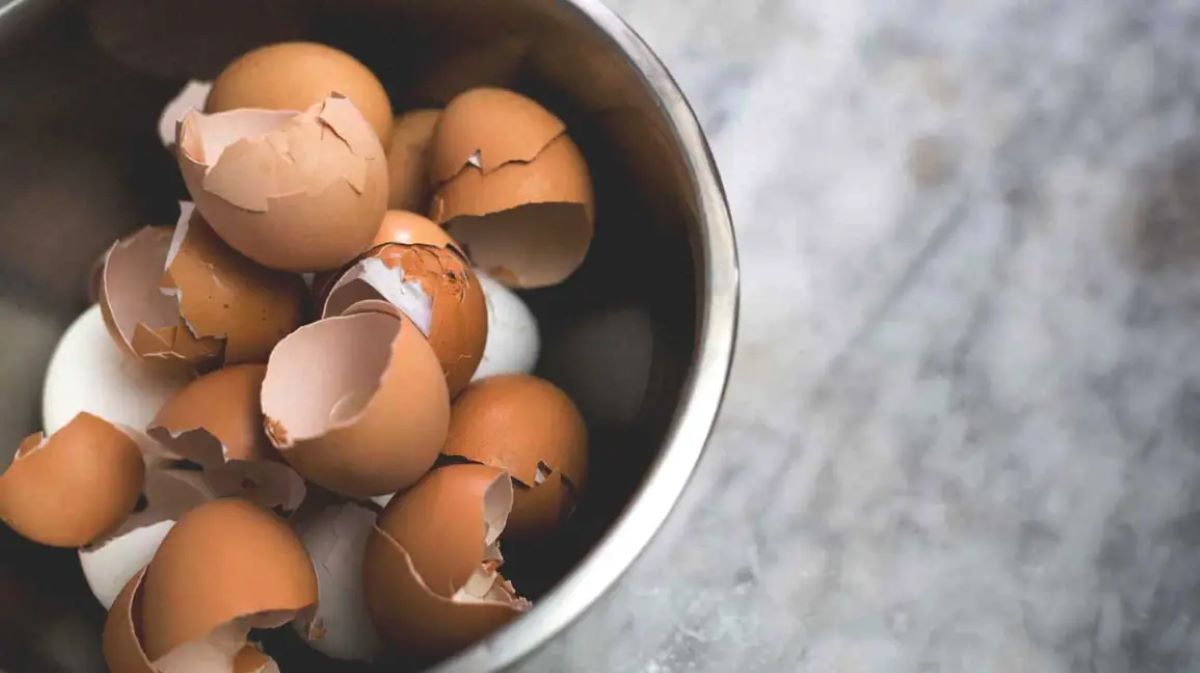

0 thoughts on “How To Store Cooked Eggs”